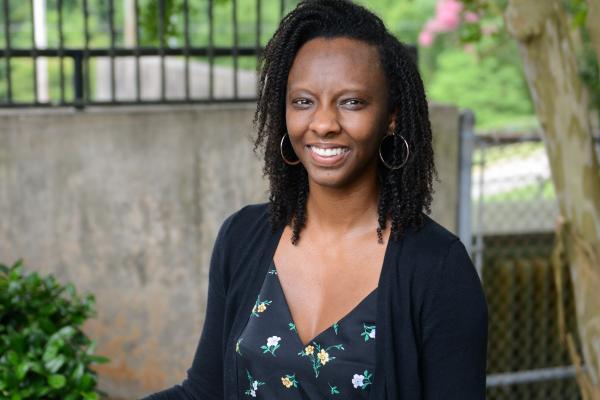
Language Patterns in Very Young Children May Support Early Autism Diagnosis
When it comes to early identification of autism spectrum disorder (ASD) in children, Jonet Artis, MEd, believes language may play a critical role.
Research shows that young children with ASD are more likely than children without ASD to show an atypical language pattern (i.e., better expressive language skills than receptive language skills). Artis, a doctoral candidate in the UNC Division of Speech and Hearing Sciences, is exploring these language patterns and whether important predictors of language development may be present by 16 months of age.
"Young children often show receptive language skills that are equal to or better than expressive language skills. Children with ASD are more likely to show a different pattern, such as better expressive language skills than receptive language skills. We want to know if we can see this pattern within the 11- to 16-month age range," she says.
This novel research earned her this year's James J. Gallagher Dissertation Award from the UNC Frank Porter Graham Child Development Institute. The award provides monetary support for a work-in-progress that is reflective of Gallagher's legacy of advancing policy and practice that supports children and families.
Artis's project will investigate the language patterns of young children who screen at elevated likelihood for ASD on a screening tool called the First Years Inventory, developed by the Program for Early Autism Research, Leadership, and Service (PEARLS). Those whose scores are elevated are invited to meet with the researchers at three time points for an evaluation of the child's early development, including language.
She says the Gallagher Award felt like a sign from the world outside her academic field that her dissertation project has value. She feels encouraged and hopeful that her work will make a tangible difference in the lives of so many.
"I was definitely honored to receive this award, as Dr. Gallagher's work has inspired me. I feel connected to his desire to translate knowledge to policy and also policy into practice, which is something that is important to me in my research. I like to think I am doing something he would agree with, something that will have a true, lasting impact."
Having already practiced as a speech-language pathologist motivates Artis to keep in mind how her academic work will be translated into real programs out in the field.
"I remember what it was like to work in areas where we didn't have as many resources as we do here in Chapel Hill. I would wonder, 'if only I had these resources, maybe I could serve these families better,'" she says. "This inspires me to keep underserved communities in mind as I try to make sure our findings can make it into practice as soon as possible."
Artis's dissertation also includes a second project, which is investigating the coaching strategies that providers use with caregivers and their children within an intervention. The Gallagher Award will enable her to hire student research assistants who can help speed her findings by viewing the videos of the intervention and coding the interactions between the families and the providers. Artis hopes her findings will help researchers move toward the most effective and efficient practices that truly help meet families' goals.
"We can see which coaching strategies are working best and incorporate those strategies as we work with families. Looking at the types of interventions that are used, and the coaching strategies caregivers respond to, helps train us on the best ways to interact with families."
